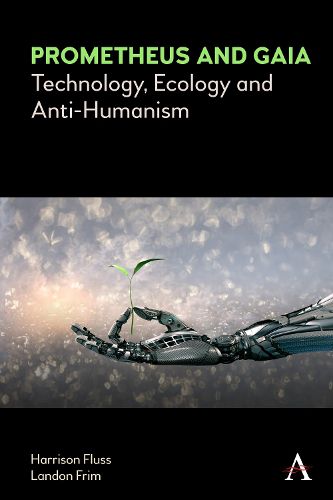Readings Newsletter
Become a Readings Member to make your shopping experience even easier.
Sign in or sign up for free!
You’re not far away from qualifying for FREE standard shipping within Australia
You’ve qualified for FREE standard shipping within Australia
The cart is loading…






An examination of the ideological positions of Futurism and Eco-Pessimism
Prometheus and Gaia examines the ideological positions of Futurism and Eco-Pessimism. While these are rarely spoken about in mainstream discourse, they do have strong resonances in today's popular politics and culture. In light of existential threats posed by climate change, disruptive technologies and economic crises, many have grown weary of the 'small fixes' offered by mainstream policy-makers. Radical change thus appears necessary, as Futurism and Eco-Pessimism emerge as two fundamental challenges to the status quo. The Futurist claims that the current dynamism of technology is incompatible with human limitations, while the Eco-Pessimist sees the climate crisis as symptomatic of a broader human domination over nature. What these seemingly opposite currents have in common is a shared rejection of the human frame as grounding politics; each seeks to subordinate the human in favour of a wholly alien other, either in the form of an anarchic nature or a dynamic technology. To transcend this strange coincidence of opposites, Prometheus and Gaia makes the positive case for a humanism that is rationalist without being anthropocentric.
$9.00 standard shipping within Australia
FREE standard shipping within Australia for orders over $100.00
Express & International shipping calculated at checkout
An examination of the ideological positions of Futurism and Eco-Pessimism
Prometheus and Gaia examines the ideological positions of Futurism and Eco-Pessimism. While these are rarely spoken about in mainstream discourse, they do have strong resonances in today's popular politics and culture. In light of existential threats posed by climate change, disruptive technologies and economic crises, many have grown weary of the 'small fixes' offered by mainstream policy-makers. Radical change thus appears necessary, as Futurism and Eco-Pessimism emerge as two fundamental challenges to the status quo. The Futurist claims that the current dynamism of technology is incompatible with human limitations, while the Eco-Pessimist sees the climate crisis as symptomatic of a broader human domination over nature. What these seemingly opposite currents have in common is a shared rejection of the human frame as grounding politics; each seeks to subordinate the human in favour of a wholly alien other, either in the form of an anarchic nature or a dynamic technology. To transcend this strange coincidence of opposites, Prometheus and Gaia makes the positive case for a humanism that is rationalist without being anthropocentric.